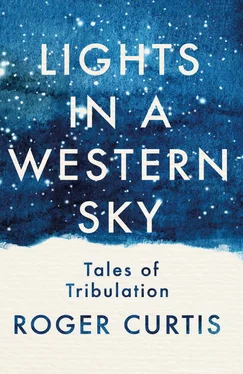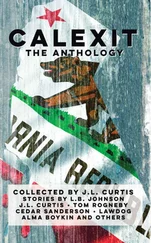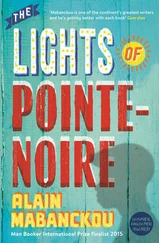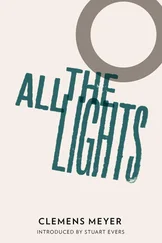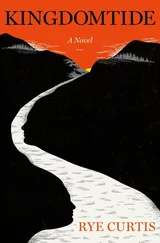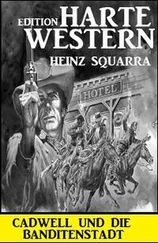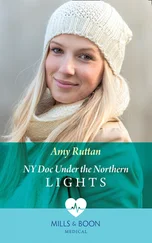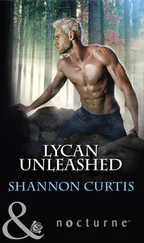A sudden crash of the door to the forward carriage forced his eyes open. He shut them hastily, sensing involvement, but too late to avoid eye contact. The African poised to enter had been on the platform at Nakuru, the starched white collar identifying his trade, the proffered bible searching out those around him as if it were a device to find souls ripe for harvest. But the remarkable thing – that which Rupert remembered most vividly – was that the man’s hair was red. Or rather it was not so much the colour of the hair itself – which is not unknown amongst members of the Bantu race – but that it was matched by the colour of the book to a degree that could not have been coincidental.
Whether through intent or because the carriage happened to lurch violently at that moment, the man fell heavily into the seat opposite. Rupert was immediately resentful. There were other seats he could have taken.
‘Please sit down,’ Rupert said facetiously.
The priest smiled, without embarrassment, seeming not to notice the intended slight. ‘Thank you. I am grateful.’
In spite of the polite and cultured response, Rupert was not reconciled. ‘Forgive me for asking, but is it accident or design that dictates your choice of seat?’
The priest placed his bible squarely in front of him, as if deliberately lining it up with Rupert’s chest. ‘Choice is something that must always be qualified.’
‘Of course,’ Rupert replied. ‘A man of God must act in circumscribed ways.’
‘That is true. But occasionally we are allowed to act outside the definable boundaries.’
Rupert’s eyes closed wearily, but then snapped open. An issue had been raised. Suddenly his companion was interesting.
‘Where are you going?’ he asked, in better humour. ‘And I am not accepting truth as a destination.’
‘I am going home.’
Rupert scrutinised his companion’s features as if he were a zoological specimen. ‘You are…’
‘Nandi. Of the Nandi tribe. And my name is Jackson. As you will appreciate, my home – Muhoroni – is a long way from Peterhouse.’
‘Ah, Cambridge. I had wondered.’
‘Yes. After four years things have changed.’ He paused to spread his hands in mock resignation. ‘Or, taking the long-term view, nothing has changed.’
‘How so?’
‘My people are afflicted. Some say it is of the mind. Others try to explain it in… I was about to say human, but let us say… well… physical terms. It’s a phenomenon found in many cultures.’
It was getting dark now. The rain continued to beat against the window. The feeble lights of the carriage seemed incapable of dispelling the gloom.
‘Does it have a name, this affliction?’ Rupert asked.
‘My people call it chemosit . A malignant spirit that can assume visible form, wreaking havoc. Men die of it.’
‘But here men die from many causes.’
‘Indeed. And for all those causes there are as many cures. I offer but one.’
‘You are an exorcist?’
The priest smiled. ‘I choose to think that I am… something more than that.’
Rupert felt he needed a cigarette. There was something about the man’s self-assurance – like the hands motionless on his bible and the stillness of his expression – that disturbed him. He rose to pull down his jacket from the rack above.
‘Please sit down, Dr Murchison.’
The authority and urgency of the instruction were replaced by the thought that Rupert had not revealed his name. Against wilting indignation, he sat down. ‘So what else do you know about me?’
‘That you are ready to go home.’
‘Oh?’
‘You are tired. Africa has not been what you hoped. The rewards not quite what you anticipated. I see it in your eyes. Am I right?’
‘I sail next week.’
‘Ah, so soon. That I did not know.’
Suddenly the carriage jerked tentatively, once, twice, three times. Then the brakes shrieked and the train stopped. The bible on the table flew into Rupert’s chest, winding him. The lights went out.
The rain was now clawing at the window. In the grey light the runnels might have been blood from torn fingernails. Perhaps, Rupert thought, it was Jackson’s chemosit trying desperately to engage him.
Within seconds the corridor filled with agitated figures trying to flee the carriage, seemingly preferring the hostile conditions outside to the confinement and darkness within. There were shouts and the sound of feet running through puddles. Cries from the front of the train carried back the message of a tree across the line, a monster so large that it would take a whole village to shift it, and then only in daylight.
Jackson made no effort to retrieve his bible from Rupert’s lap. ‘We must go now, Dr Murchison. Come, bring your bag.’ Seeing Rupert’s reluctance, he said, ‘There are those still on the train who would take… well, let us say… advantage of the darkness. In any case,’ he added brightly, ‘we are almost at Muhoroni.’
‘How close?’
‘Oh, two, three miles only.’
Rupert marvelled at Jackson’s assurance in a situation that seemed potentially dire – water everywhere, the light failing, the uncertain antics of an unbalanced crowd. He sensed in Jackson not just a player, but an agency. There was no other explanation for how he found the obscure gap in the forest edge that led to the path they took. Or how, in near darkness, he could pick his way through the detritus on the ground with such certainty. The residual grey oval of light closed behind them, like a snuffed candle. Then there was silence, total and oppressive. To Rupert the forest felt like a squeezed sponge refilled with still, dank air, as if all the processes of nature had been suspended.
At first Rupert could only follow the purposeful sway of his companion’s shoulders, but gradually his eyes became accustomed to the gloom. It seemed that the rain was unable to penetrate the canopy above, but as his ears became more attuned he began to hear its passage. The blackness above slowly became speckled with points of light, until they were sufficient to reveal the silvery lattice that clothed the branches of the trees. Then came the tinkling and plopping of water against the leaves of the lower strata, the only sounds to break the absolute silence.
For many minutes they walked without speaking. Then Jackson stopped and turned. ‘You see,’ he said, pointing upwards to the pale light of an emerging moon, ‘how prayers can be answered. Now, I think it is your turn to lead. And besides, I need to pray alone for a moment or so. Our predicaments are not the same, Dr Murchison. Be assured that mine is the more unenviable.’
Rupert realised that he was still carrying Jackson’s bible, which he held out to his companion. ‘No, no,’ Jackson said, refusing it. ‘You must guard it for me. I have no immediate need.’
This reversal of roles was no chance thing. Rupert had been given a part to play, an opportunity, almost, but to what purpose he could not determine. Outwardly it was the sort of challenge that faced military recruits on orientation exercises when, alone, they had to extricate themselves from demanding situations. He set off in the direction that Jackson had pointed, along another path identical to the first. He looked back to see the dark figure immobile in the clearing, with head bowed. An imperious gesture of the hand waved him on. Given no conceivable option he obeyed.
He moved forward, guided only by the faint ribbon of light above the path. He began to feel free of Jackson’s presence, and with that came the realisation that the forest was no longer a dumb lifeless thing but full of myriad sounds from the whole spectrum of sylvan fauna. Cicadas rasped and amphibians roared their repertoires against the distant crashing of larger forms.
Читать дальше
